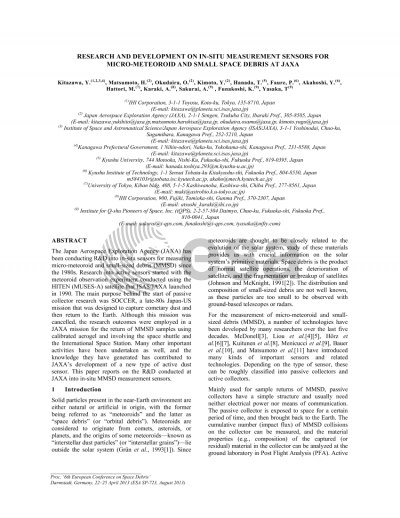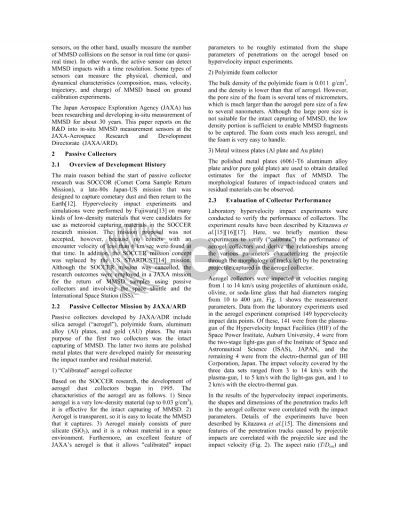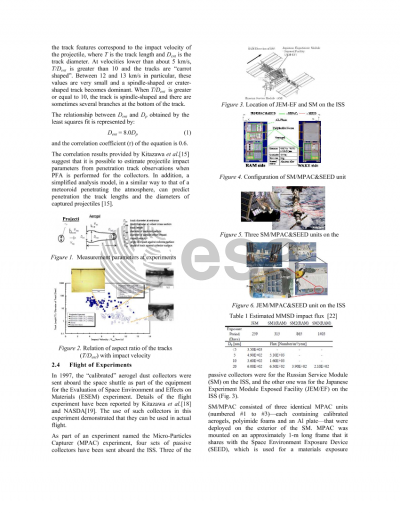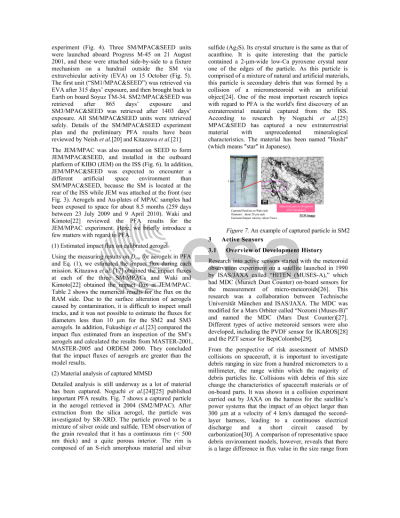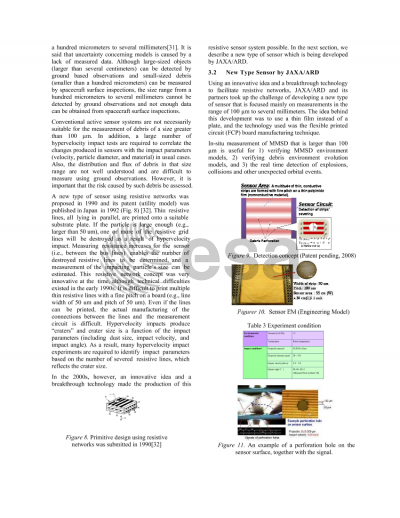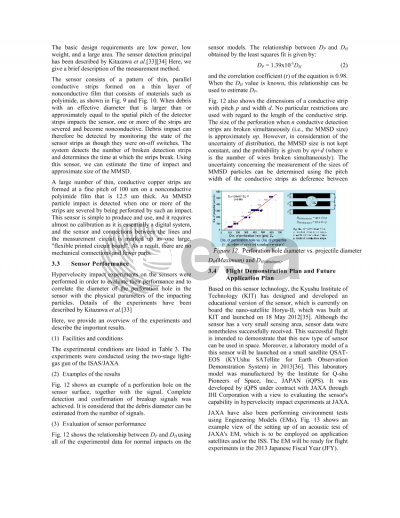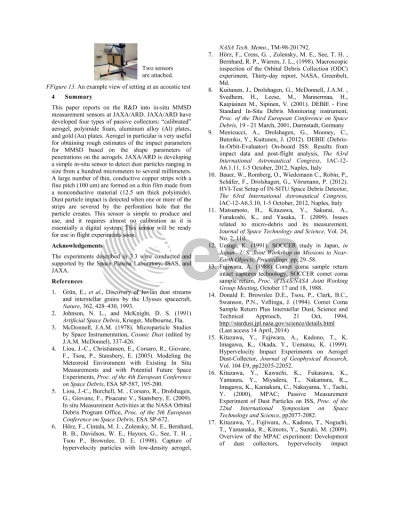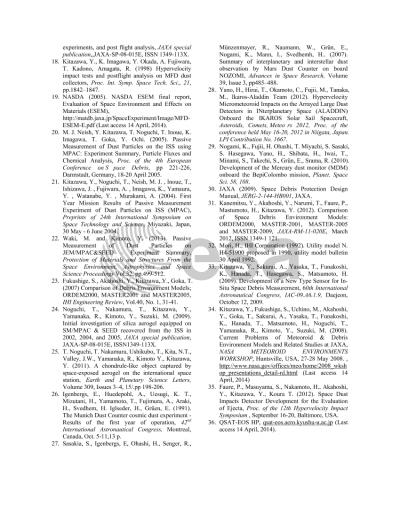Document details

Abstract
The Japan Aerospace Exploration Agency (JAXA) has been conducting R&D into in-situ sensors for measuring micro-meteoroid and small-sized debris (MMSD) since the 1980s. Research into active sensors started with the meteoroid observation experiment conducted using the HITEN (MUSES-A) satellite that ISAS/JAXA launched in 1990. The main purpose behind the start of passive collector research was SOCCER, a late-80s Japan-US mission that was designed to capture cometary dust and then return to the Earth. Although this mission was cancelled, the research outcomes were employed in a JAXA mission for the return of MMSD samples using calibrated aerogel and involving the space shuttle and the International Space Station. Many other important activities have been undertaken as well, and the knowledge they have generated has contributed to JAXA's development of a new type of active dust sensor. This paper reports on the R&D conducted at JAXA into in-situ MMSD measurement sensors.
Preview
